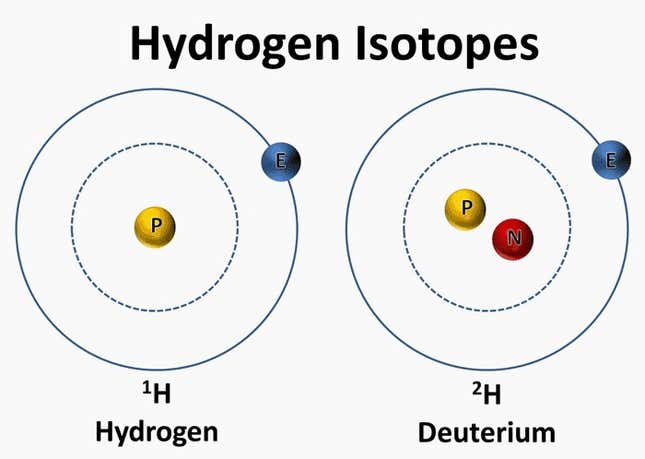Your body treats drugs much like a sandwich.
As soon you ingest something, enzymes and acids start breaking down its various chemical components. That’s bad news for most drugs, because the active ingredient can’t do its job if it is quickly broken down. (A metabolized drug is often eliminated when you pee.)
Pharma companies have spent billions trying to find ways to delay drug metabolism. A common trick is to coat a tablet with agents that will resist the effects of stomach acids, or put the the drug in a capsule that will only dissolve and release the drug in, say, the large intestine.
Teva Pharmaceuticals has taken the idea of delaying drug metabolism even further. The company has replaced some of the hydrogen atoms in a drug with the heavier isotope deuterium. The company claims this tweak allows the drug, called deutetrabenazine and marketed as Austedo, to remain unchanged in the body for longer, providing more effective treatment for sufferers of Huntington’s disease. Yesterday, Teva announced that its claims have been rigorously checked by the US Food and Drug Administration, which will allow it to sell the drug on the market.

Deuterium, or heavy hydrogen as some call it, is an isotope of hydrogen that has an extra neutron. The additional neutron doubles its atomic weight, which makes breaking the chemical bonds within the drug more difficult. This is important because the first step to metabolizing a drug is breaking the bond between hydrogen and other atoms. The stronger the bond, the longer the drug will remain intact, prolonging its effects.
Slowing down drug metabolism means that doctors can prescribe lower doses of deuterated drugs to achieve the same effect as higher doses of normal medicines. In an ideal world, it would mean patients suffer fewer side-effects but receive similarly effective treatments.
Pharma companies have been experimenting with deuterated drugs for many years but, according to pharma commentator Derek Lowe, it’s only in the past decade that serious research has been conducted in the field. Beyond Austedo, there are a number of other deuterated drugs in the approval pipeline. Now that Teva has got one approved, it’s likely we’ll see more on the market soon.
